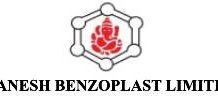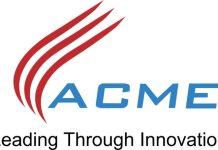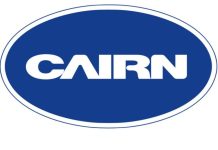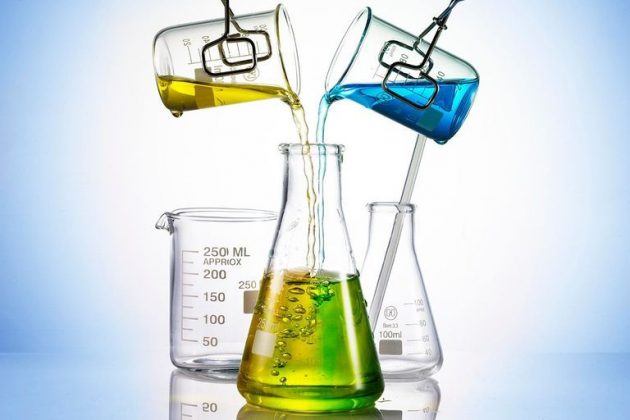In this month’s column, Sahasranaman builds a case for compulsory water audit along the lines of the energy audit. It would bring the necessary discipline in the industry to survive the increasingly water-stressed times. The 3R principle of Reduce – Reuse – Recycle has to be widely adopted by the industry to manage water. In the long term, industry and agriculture need to partner for a holistic management of water.
No other month reminds us more about water in India than May. The hardest hit is our thermal power plants, many of which are located in highly water-stressed areas. They are forced to operate at part loads or even shut down. The latest data released by Central Water Commission is cause for alarm. The average live water storage of all of our water reservoirs have shrunk to a low of 20%.
Industry accounts for 19% of fresh water usage globally, while agriculture and households use 69% and 12% respectively. But this does not tell the whole story. Agriculture is now using 3 times more water than 50 years ago and this is expected to increase by 19% by 2050. Since food has to be the top priority, the industry will be under increasing water stress in the coming years. With 18% of global population and only 4% of the global water, India’s situation is extremely precarious. Indian agriculture consumes as much as 87% of water with industry accounting for 8%. Industry gets the last priority in our National Water Policy and thus suffers most even though it accounts for only 8%. It is no secret that our agriculture is wasteful in its water usage. But unless there is a strong political will, the industry will continue to bear the brunt of water scarcity.
Water in Industry
Among industry, thermal power plants are the biggest consumers with a whopping share of 88%. Other water guzzling industries are engineering, pulp and paper, textiles, steel and sugar. When benchmarked globally on water usage, Indian industries come across as very inefficient. There is thus scope for conserving water through process modifications and better operating practices.
The biggest usage of water by industry is for cooling, most of which is lost to the atmosphere by evaporation. Next comes raising steam. Water is used in product purification, as a solvent or for washing. Water is also used for producing the vacuum. In addition, water also sometimes form part of the product, either as a diluent or by participating in the chemical reaction.
Managing freshwater requires the application of the 3R (Reduce – Reuse – Recycle) principle:
• Process changes to reduce water demand
• Reuse of wastewater from one process in another process.
• Recycle of wastewater in the same process.
Reduce
Water usage can be reduced through process modification and re-engineering. Cooling loads can be minimised by applying pinch technology to increase process to process heat exchange. Heat pumps can reduce cooling loads of distillation columns. Major cooling loads can be transferred to air, keeping only a small residual load for cooling water. Water make-up to closed cooling water circuits can be reduced by operating at higher concentration cycles and adopting better water treatment methods.
Upgrading water-ring vacuum pumps to the expensive dry vacuum pumps reduce water and wastewater.
Washing and rinsing operations consume a lot of water that ends up as wastewater. The efficiency of washing can be increased by providing turbulence, either through spraying or air agitation. Increased contact time in multistage washing also improves efficiency. A countercurrent multistage washing system can reduce water consumption by as much as 90% compared to a single-stage process.
Water is purified either through ion-exchange or Reverse Osmosis, and there is a loss of water in both process. By choosing better ion-exchange resins and improved column design, washing and rinsing cycles can be reduced to save water. Improved RO membranes increase recovery and reduce water lost in rejects.
The major impediment to implementing most of these measures is that they do not yield decent payback and that is because water is not realistically priced.
Pinch Technology
Much of the water used in industry ends up as effluent. Reuse and recycling of wastewater not only reduces fresh water usage but also reduces the effluent disposal problems. Opportunities for water reuse and recycle are not easy to spot, especially in large chemical plants. Pinch technology, which has been extensively used for heat integration in large process plants, can also be used to discover possibilities of water reuse and recycle. Using pinch techniques fresh water requirement can be matched with treated recycle water.
Levels of treatment can be matched with fresh water specifications to reduce costs.
Treating wastewater for reuse and recycle is not always easy. Some contaminants are intransigent and difficult to biodegrade. Technology licensors mostly shy away from offering guarantees on effluent quality and quantity, especially for new technologies that haven’t fully matured. Also, operators treat wastewater guarantees lackadaisically compared to energy consumption for example. They are often willing to let go of the shortfall in wastewater guarantees and manage it by diluting with clean water as long as the licensor picks up the tab.
Water Audit
There is a strong case for water audit along the lines of the energy audit. Unlike energy, the demand-supply equation doesn’t seem to govern water pricing. Most people refuse to even consider it as a commodity and treat it as a gift of nature. Water audit will change this perception in a big way. The principle behind water auditing is – if you don’t measure it, you can’t manage it. The audit will require companies to measure water used at every point and trace where it ends up. Water balance will reveal how and where water is lost.
Water audit will have to be made compulsory for designated industries. This will require an act of parliament to establish a body similar to the Bureau of Energy Efficiency. Industries will have to employ certified water managers. They will have to also get a water audit done annually by a certified water auditor and demonstrate continuous improvement. This will promote benchmarking of water consumption. Compulsory water audit will bring the required discipline in the industry.
The long-term vision of industry should be to lobby with the authorities to get it an even footing as agriculture in the National Policy. Agriculture can easily save water by adopting practices like drip irrigation, which is however capital-intensive. As part of their CSR, big industries can adopt farms in their taluka or district and implement such water conservation methods. Such collaboration between industry and agriculture is the need of the hour.
It is unrealistic to expect dramatic savings from water management. Improvements in the industry would be incremental, but as the saying goes little drops of water make the mighty ocean.
Readers’ responses may be sent to k.sahasranaman@gmail.com or chemindigest@gmail.com
































